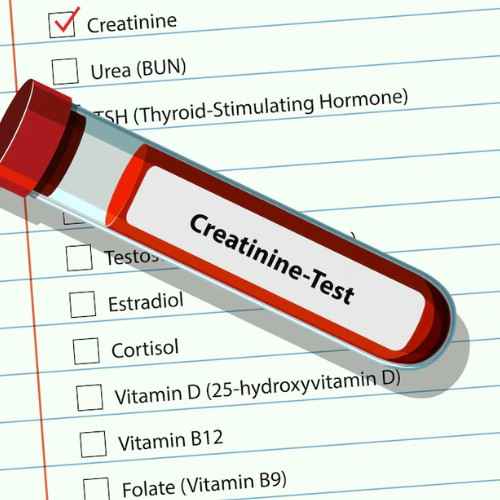Is Creatinine Level 2.9 Level Dangerous?
Hey there! If you’re reading this, chances are you or someone you care about got some blood test results back, and the creatinine level came in at 2.9. Maybe your doctor raised a flag, or you’re just curious about what this number means. You must be wondering, “Is Creatinine 2.9 dangerous?” Either way, you’re in the right place. Let’s break it down in a way that feels like a chat over coffee; clear, human, and with just enough detail to make sense without overwhelming you.

What’s Creatinine?
First things first: creatinine is a waste product. Your muscles produce it as they go about their daily business, and your kidneys are the superheroes responsible for filtering it out of your blood and sending it packing through your urine. Think of creatinine as a marker, a little clue about how well your kidneys is doing their job.
When doctors measure your creatinine level, they’re essentially checking how efficiently your kidneys are clearing out this waste. A normal creatinine level varies depending on factors like age, gender, and muscle mass, but for most adults, it’s roughly:
🚨 Don’t wait for symptoms to get worse—protect your kidneys today.
Join Now
- Men: 0.7 to 1.3 mg/dL
- Women: 0.6 to 1.1 mg/dL
So, your creatinine of 2.9 mg/dL is above the normal range. But before we panic, let’s discuss what this could mean and why it’s not a one-size-fits-all situation.
Is Creatinine Level 2.9 High?
“High” or “Dangerous” depends on a few factors, but a creatinine level of 2.9 is indeed elevated and something to pay attention to. It’s like noticing a warning light on your car’s dashboard; a signal to investigate, but not necessarily a sign that things are about to get blown.
Causes of Creatinine 2.9
- Acute Kidney Problem: In general, a sudden increase in creatinine can occur due to dehydration, an infection, or even certain drugs (eg, NSAIDs or some antibiotics). They are often transient and, with appropriate treatment, may resolve.
- Chronic Kidney Disease (CKD): If your creatinine has been going up over a matter of time, it may indicate CKD, which is when your kidneys are losing some, but not all, of their filtering ability. A reading of 2.9 may indicate moderate kidney impairment, generally identified as stage 3 CKD, though this would have to be confirmed by other testing.
- Other Factors: A high-protein diet, strenuous exercise, or even muscle breakdown (from injury or conditions like rhabdomyolysis) can raise creatinine levels without shouting “kidney failure.” One more thing, if you’re extremely muscular, then your baseline naturally might be a little higher.
The key question is: Is this 2.9 a one-time thing, or part of a trend? Your doctor will likely want to dig deeper with tests like:
- eGFR (Estimated Glomerular Filtration Rate): This uses your creatinine, age, sex, and race to estimate how well your kidneys are filtering. An eGFR below 60 with a creatinine of 2.9 would raise more concern.
- Urine Tests: Checking for protein or blood in your urine can give more clues about kidney health.
- Imaging: An ultrasound might be ordered to look at your kidneys’ structure.
When Should You Worry?
All right, let’s keep it trills; no one wants to hear these “kidney problems. But in most cases, a 2.9 creatinine isn’t an acute emergency. Still, a prod to do something. Here are some warning signs that could indicate it’s time to call your doc ASAP:
- Symptoms: Are you super tired, swollen (especially your legs or face), short of breath, or seeing foamy urine? These may indicate more serious kidney problems.
- Other Health Issues: A 2.9 is more troubling if you have diabetes, high blood pressure, or a family history of kidney disease; over time, these problems can take their toll on your kidneys.
- Unexpected Flips: If your creatinine was normal last month and now it’s 2.9, it’s more significant than if it’s been stable at that level for years.
What Can You Do About It?
If your creatinine is 2.9, don’t feel helpless; there are steps you can take to support your kidneys and get a clearer picture:
- Talk to Your Doctor: This is non-negotiable. They might recommend a nephrologist (kidney specialist) to figure out the root cause. Bring a list of your meds, diet habits, and any symptoms to the appointment.
- Stay Hydrated: Dehydration can falsely elevate creatinine, so make sure you’re sipping water throughout the day (unless your doctor says otherwise, like in advanced kidney disease).
- Watch Your Diet: A kidney-friendly diet might mean cutting back on salt, protein, or certain minerals like potassium or phosphorus. A dietitian can help tailor this to you.
- Manage Underlying Conditions: If you’ve got diabetes or hypertension, keeping those in check is huge for your kidneys.
- Avoid Kidney Stressors: Over-the-counter meds like ibuprofen can be tough on your kidneys, so check with your doctor before popping them.
The Emotional Side of Things
Let’s not skip this part. Seeing an abnormal test result can be scary. You might be wondering, “Am I going to need dialysis?” or “Is this my fault?” Take a deep breath. A creatinine of 2.9 doesn’t mean you’re headed straight for dialysis, and it’s not about blaming yourself. Your kidneys are tough, and catching this now gives you a chance to protect them.
It’s okay to feel overwhelmed. Lean on a trusted friend, family member, or even a counselor to talk it out. And don’t hesitate to ask your doctor questions; lots of them. You deserve to understand what’s going on.
🛑 Creatinine rising? Kidney function falling. Stop it in time.
Join Now
Wrapping It Up
So, is a 2.9 creatinine level dangerous? It’s a warning sign, not a death sentence. It means your kidneys might need some TLC, and it’s time to team up with your healthcare provider to figure out why. Whether it’s a temporary blip or a sign of something more chronic, you’ve got options to manage it and protect your health.
Keep an eye on how you’re feeling, stay curious about your body, and don’t be afraid to advocate for yourself. You’ve got this, and your kidneys will thank you for paying attention.





